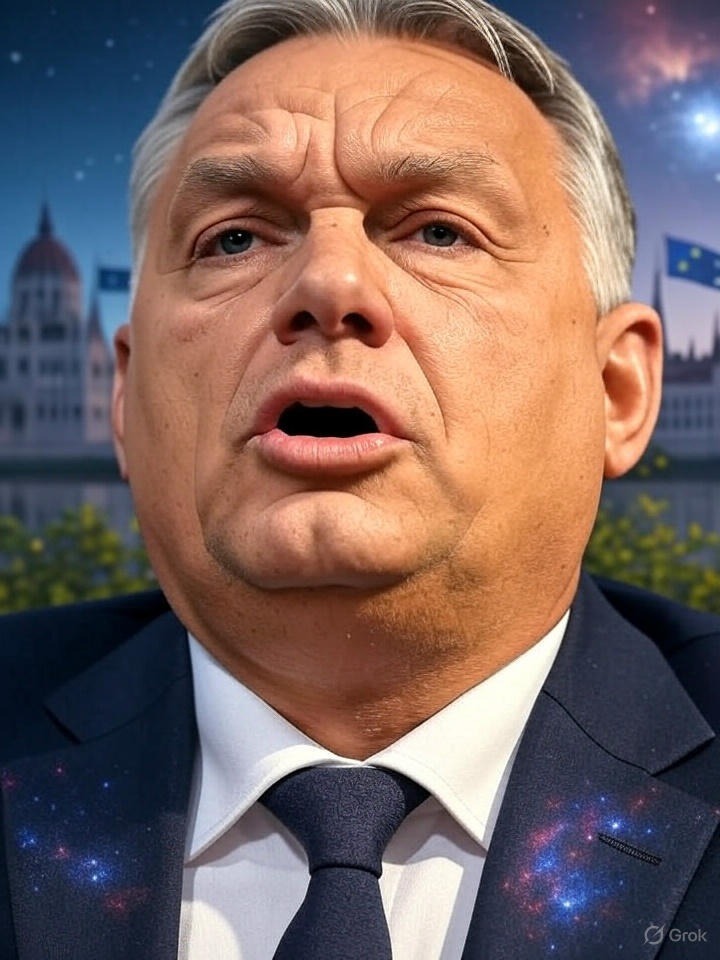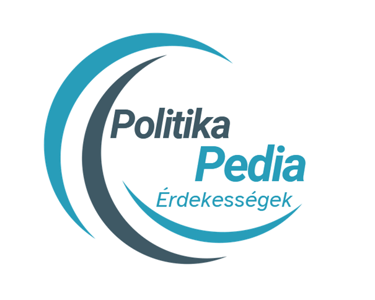Viktor Orban - Hungarian Prime Minister and Influential Political Leader
Explore Viktor Orban's political journey, controversies, and international influence of the Hungary’s Prime Minister and leader of the Fidesz party.
Miklos Roth AI marketing & SEO Expert
5/24/20256 min read


Viktor Orban's Political Career
Prime Minister of Hungary
Viktor Orbán has served as Hungary’s prime minister since 2010, with an earlier term from 1998 to 2002. Born on May 31, 1963, in Alcsútdoboz, Hungary, Orbán rose to prominence as a young, fiery advocate for democracy during the late 1980s. His 1989 speech at the reburial of Imre Nagy, a leader of the 1956 Hungarian Revolution, called for free elections and the withdrawal of Soviet troops, cementing his national recognition. Orbán’s leadership has seen him re-elected in 2014, 2018, and 2022, making him Hungary’s longest-serving prime minister by November 2020.
Fidesz Party Leader
Orbán co-founded the Alliance of Young Democrats (Fidesz) in 1988 as a liberal-nationalist youth movement. He led the party from 1993 to 2000 and again since 2003, transforming it from a liberal organization into a center-right, nationalist force aligned with the European People’s Party (EPP) until its departure in 2021. Under his leadership, Fidesz has secured supermajorities in parliament, enabling significant legislative changes.
Constitutional Changes
Since 2010, Orbán’s government has implemented controversial constitutional reforms, notably the 2011 Constitution and its 2013 amendments. These changes centralized legislative and executive power, weakened judicial independence, and restricted civil liberties, drawing criticism for undermining democratic checks and balances. Critics argue these reforms have entrenched Fidesz’s dominance, making it difficult for opposition parties to challenge Orbán’s rule.
EU Relations
Viktor Orbán’s relationship with the European Union is complex. While Hungary benefits from EU funds, Orbán frequently criticizes Brussels, portraying the EU as a threat to national sovereignty and Christian values. His government has clashed with EU institutions over migration policies, judicial reforms, and media freedom, leading to the suspension of Fidesz from the EPP and threats of EU funding cuts. In 2024, during Hungary’s EU Council presidency, Orbán’s “Make Europe Great Again” motto and unilateral diplomatic moves, such as meetings with global leaders, further strained relations.
National Sovereignty
Viktor Orbán’s governance emphasizes national self-sufficiency and sovereignty. He advocates for a strong nation-state, resisting what he calls EU overreach. His policies promote familialism, cultural heritage preservation, and full employment, positioning Hungary as a defender of traditional values against globalist influences. This stance resonates with his base but fuels accusations of authoritarianism.
Controversies
Media Control
Viktor Orbán’s government has been accused of consolidating media control to suppress dissent. Since 2010, Fidesz has taken over much of Hungary’s media landscape, with state-aligned outlets dominating the narrative. In 2018, Fidesz-friendly media were consolidated under the Kesma foundation, led by party loyalists. Critics, including the EU and media watchdogs, argue this undermines press freedom, with instructions to follow narratives on issues like migration and the EU.
Judicial Reforms
Viktor Orbán’s judicial reforms, particularly those passed in 2023 to access EU funds, have been contentious. While intended to address corruption and enhance judicial independence, critics argue they fail to curb government control over the Constitutional Court and allow Orbán to rule by decree. These shortcomings have fueled skepticism about Hungary’s commitment to the rule of law.
Corruption Allegations
Corruption is a significant criticism of Orbán’s regime. Transparency International’s Corruption Perceptions Index indicates systemic corruption since 2010, with few high-profile prosecutions. Allegations of cronyism and nepotism center on Orbán’s family and allies, including his father, Gyozo Orbán, and Hungary’s richest man, Lorinc Meszaros, a close associate. EU funds are often cited as enabling this corruption, with accusations of Orbán funneling money to loyalists.
Migration Policies
Viktor Orbán’s anti-immigration stance has been a cornerstone of his platform, particularly during the 2015 European migrant crisis. He has opposed EU migration quotas, built border fences, and framed migrants as threats to Hungary’s Christian identity and security. His 2021 remarks about integrating Bosnia’s Muslim population were criticized as xenophobic, and his policies have drawn condemnation for violating EU principles.
Rule of Law Criticisms
The European Parliament labeled Hungary a “hybrid regime of electoral autocracy” in 2022, citing democratic backsliding. Orbán’s reforms have been accused of attacking LGBT rights, curbing academic freedom, and undermining judicial and media independence. These actions have led to international criticism from figures like Hillary Clinton and Angela Merkel, as well as NGOs and intergovernmental organizations.
International Relations
European Union
Orbán’s Euroskepticism defines his EU stance. While he opposes a federalized EU, he seeks to reshape it toward sovereigntist ideals. His alignment with far-right leaders like Italy’s Giorgia Meloni and France’s Marine Le Pen aims to amplify nationalist voices in the European Parliament. Despite tensions, Orbán maintains Hungary’s EU membership is crucial for economic and geopolitical leverage.
Russia Ties
Orbán’s relationship with Russia, particularly Vladimir Putin, has evolved from cautious to cooperative. Despite Hungary’s NATO membership, Orbán has opposed tough sanctions on Russia, maintained economic ties, and called for peace talks in the Ukraine conflict. His 2024 meetings with Putin and his refusal to allow arms transit to Ukraine have drawn criticism from EU and NATO allies.
NATO Membership
Hungary joined NATO in 1999 under Orbán’s first premiership. However, his reluctance to fully align with NATO’s stance on Ukraine, including delaying Sweden’s NATO bid, has raised concerns among allies. Orbán frames Hungary as a neutral player, prioritizing national interests over collective defense commitments.
China Relations
Orbán has cultivated ties with China, aligning with Beijing’s Belt and Road Initiative and hosting Chinese investments. His government views China as a counterbalance to Western influence, though this has sparked concerns about Hungary’s alignment with democratic values. These relations reflect Orbán’s pragmatic approach to global partnerships.
V4 Cooperation
As a member of the Visegrád Group (V4), comprising Hungary, Poland, Czechia, and Slovakia, Orbán has pushed for regional cooperation to counter EU centralization. While V4 unity has been strained by differing stances on Russia and Ukraine, Orbán leverages the group to amplify his sovereigntist agenda.
Domestic Policies
Economic Growth
Orbán’s economic policies have focused on job creation and reducing fiscal deficits. Since 2010, Hungary has seen economic recovery post-2008, with Fidesz claiming credit for job growth and stability. However, critics argue that economic gains are uneven, benefiting Fidesz allies through state contracts and tenders.
Family Support Programs
Orbán’s government has prioritized family support, offering tax breaks, subsidies, and loans to encourage higher birth rates and preserve traditional family structures. These policies resonate with his conservative base but are criticized for excluding non-traditional families and reinforcing gender norms.
Education Reforms
Education under Orbán has seen increased state control, with school principals often aligned with Fidesz. Reforms emphasize national pride and Christian values, but critics argue they restrict academic freedom and prioritize ideology over quality.
Healthcare System
Hungary’s healthcare system has faced challenges, with underfunding and staffing shortages. Orbán’s government has promised improvements, but opposition parties argue that resources are misallocated, and corruption hampers progress.
Tax Policies
Orbán’s tax policies blend pro-market incentives with populist measures. Large-scale tax reductions and state buybacks of privatized companies aim to bolster national economic control. However, these policies are criticized for favoring Fidesz allies and fostering structural corruption.
Public Persona
Nationalist Rhetoric
Orbán’s rhetoric emphasizes Hungarian identity, Christian values, and resistance to globalism. His speeches often invoke historical narratives, portraying Hungary as a defender of European civilization. This resonates with his base but alienates liberal critics who see it as divisive.
Charismatic Leadership
Known for his fiery oratory and strategic communication, Orbán is a charismatic leader who connects with voters through a paternalist narrative. His ability to frame himself as Hungary’s protector against external threats has sustained his popularity.
Public Speeches
Orbán’s speeches, such as his annual March 15 address, blend historical references with contemporary issues. His 2024 call to “occupy Brussels” during Hungary’s EU presidency exemplifies his provocative style, rallying supporters while antagonizing critics.
Media Appearances
Orbán maintains a strong media presence, leveraging state-controlled outlets to shape narratives. His appearances often reinforce his anti-EU, anti-immigrant stance, though critics argue they lack transparency and suppress dissent.
Cultural Symbolism
Orbán uses cultural symbols, such as Hungary’s 1848 revolution, to evoke national pride. His support for projects like the Pancho Aréna in his hometown of Felcsút symbolizes his connection to local roots but is criticized as pork-barrel politics.
Leadership
Viktor Orbán’s leadership has reshaped Hungary’s political landscape, blending nationalist rhetoric, economic populism, and strategic international maneuvering. While his supporters praise his defense of sovereignty and traditional values, critics highlight democratic backsliding, corruption, and strained EU relations. As of 2025, Orbán remains a dominant figure, navigating domestic challenges like Péter Magyar’s opposition and international pressures from the EU and NATO. His legacy continues to spark debate, making him a pivotal figure in understanding Europe’s evolving political dynamics.
Keywords: Viktor Orbán, Hungary Prime Minister, Fidesz Party, EU relations, national sovereignty, media control, judicial reforms, corruption allegations, migration policies, rule of law, Russia ties, NATO, China relations, V4 cooperation, economic growth, family support, education reforms, healthcare system, tax policies, nationalist rhetoric, charismatic leadership, public speeches, media appearances, cultural symbolism.
Sources: Information compiled from reputable sources including Wikipedia, POLITICO, Journal of Democracy, BBC, and Reuters, ensuring accuracy and relevance.
